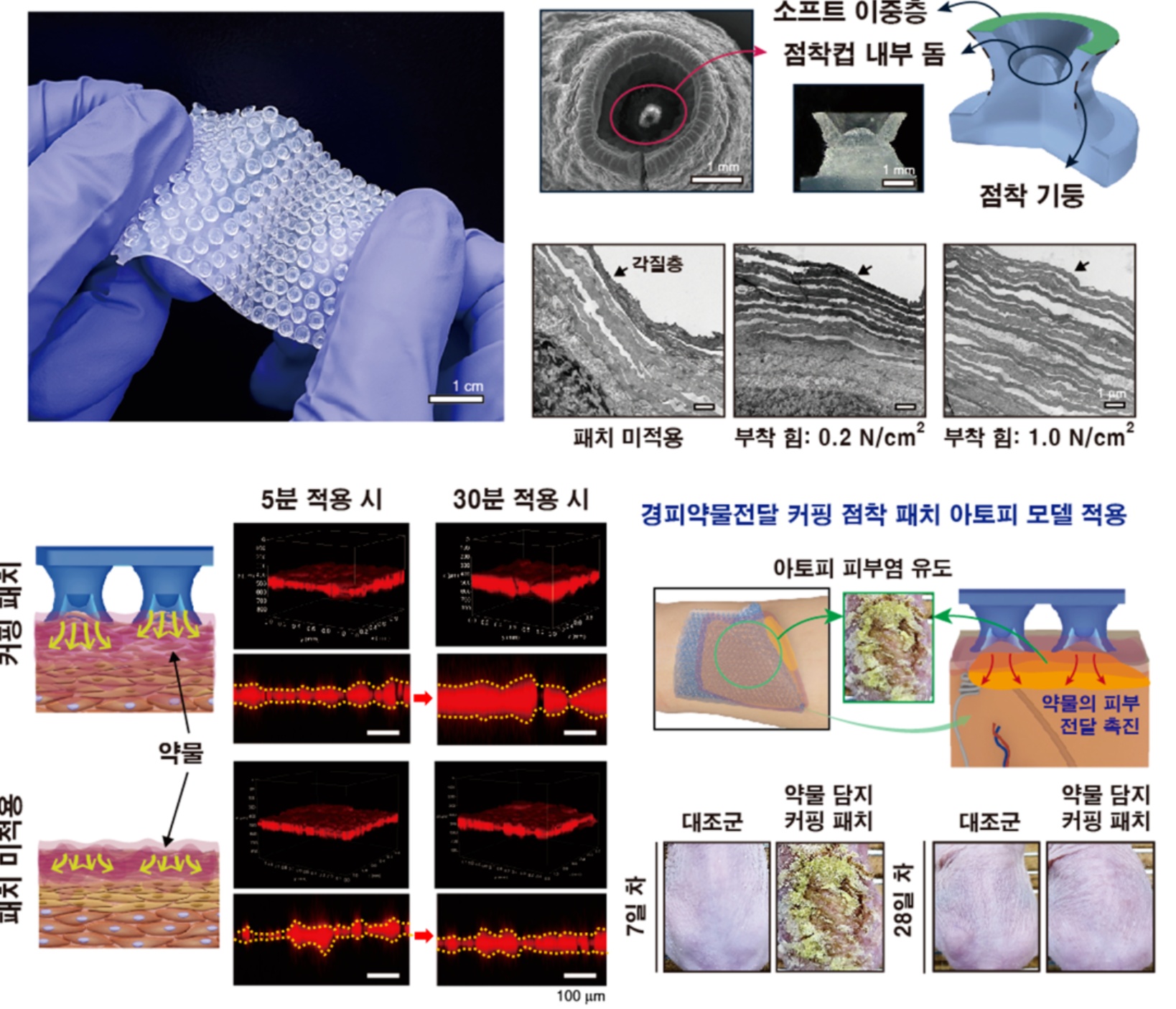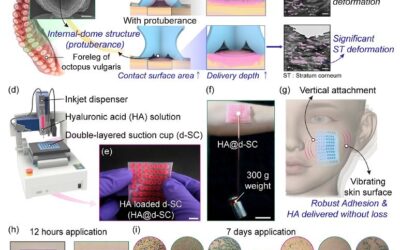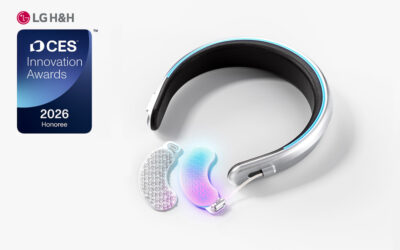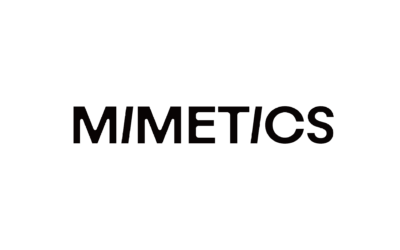[University Journal – Reporter Jong-rim On] The research team led by Professor Chang-hyun Bang of the Department of Chemical and Polymer Engineering at Sungkyunkwan University has developed a low-stimulation, non-invasive transdermal drug delivery (TDD) cupping adhesive patch inspired by octopus suction cups. The patch utilizes localized negative pressure generated by artificial suction cups to deform the stratum corneum, enhancing drug penetration through the skin.
In collaboration with Professor Ki-hyun Kim’s team from the College of Pharmacy, the patch was tested on atopic dermatitis animal models using natural compounds (maltol), demonstrating effective drug delivery and therapeutic potential for atopic dermatitis.
While transdermal delivery offers convenience and localized treatment, the dense structure of the skin’s stratum corneum has traditionally limited drug absorption efficiency. The Bang research team has improved the design and material of their previously reported artificial suction cups (Nature, 2017) to adapt to curved and rough skin surfaces. The resulting patch provides stable adhesion with minimal force, promotes drug penetration via negative pressure stimulation, and does not require additional power sources or equipment, increasing both usability and cost-effectiveness.
Transmission electron microscopy analysis revealed the formation of micro-gaps between stratum corneum layers under negative pressure. Tests across various skin types confirmed that drug penetration depth increased uniformly and effectively. The patch also demonstrated effective delivery of molecules with different properties and molecular weights, including retinol and hyaluronic acid, in multiple skin models, including porcine, artificial, and human skin.
Joint studies with Professor Kim’s team showed that the maltol-loaded TDD cupping patch significantly improved therapeutic outcomes in atopic dermatitis animal models compared to conventional topical immune-modulating treatments.
The research team noted, “This patch technology enables low-stimulation, non-invasive drug delivery through simple skin adhesion without complex equipment. It has the potential to expand from cosmetics to pharmaceuticals and offers a new concept for transdermal drug delivery system technology.” The technology has been licensed to Sungkyunkwan University’s startup, MIMETICS Co., Ltd., and is currently in product development.
The study was published online on January 22 in the international journal ACS Nano (IF: 17.1) and was selected as a journal cover.
Source: University Journal (https://dhnews.co.kr)
Reporter: Jong-rim On | jrohn@naver.com
온종림 | jrohn@naver.com




